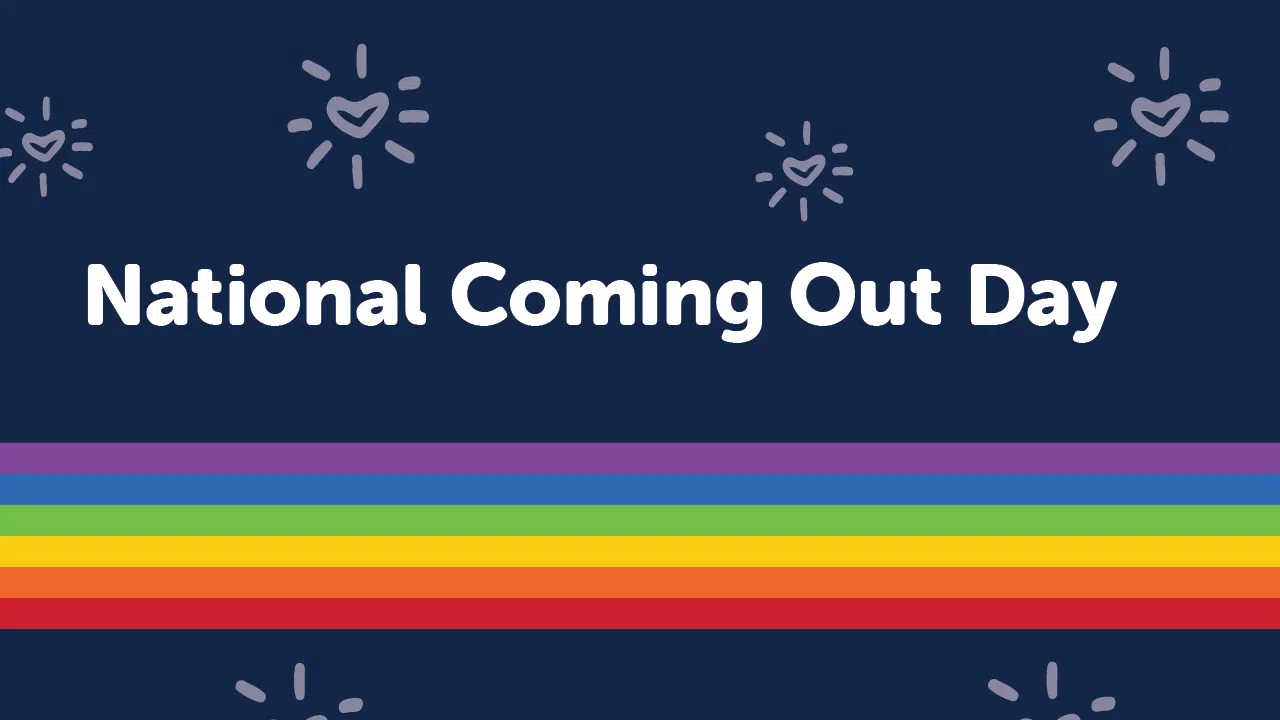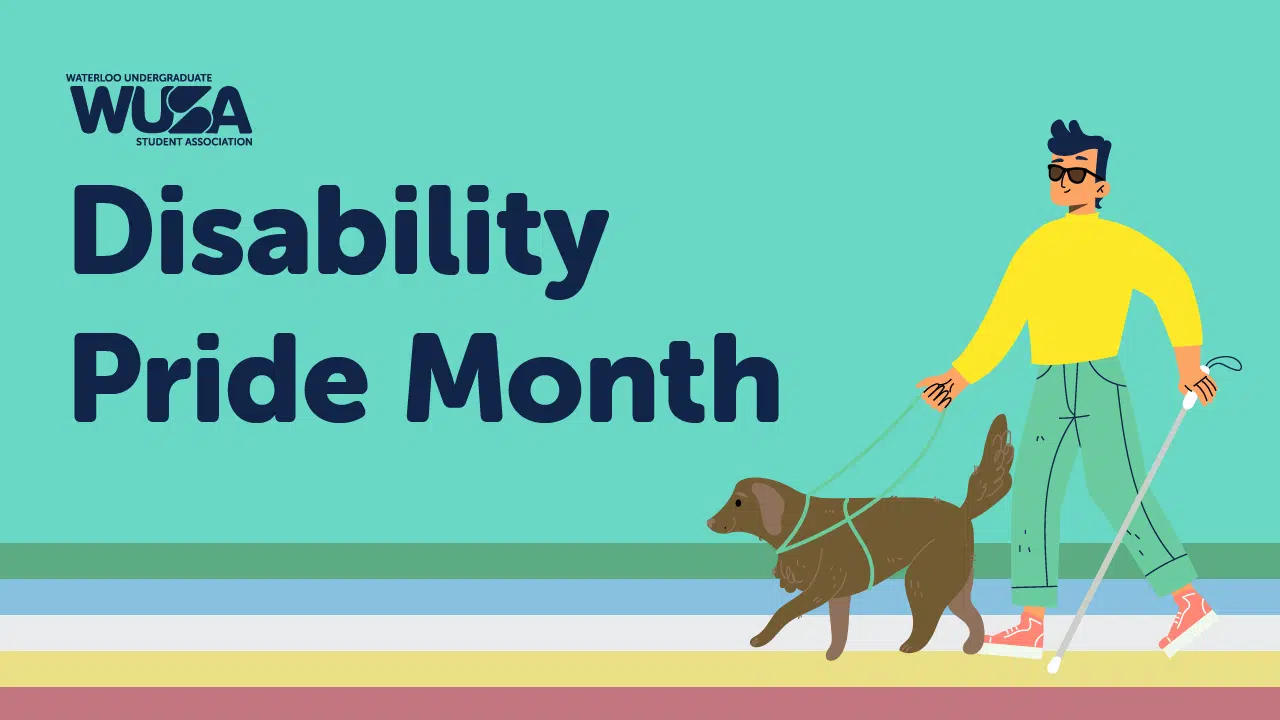National Coming Out Day 2022

Written by: Bella McKenzie
October 10th, 2022 is National Coming Out Day! It’s important to recognize that the purpose of National Coming Out Day can be acknowledged any day and every day.
Whether “coming out” is something you think about or not, it’s important to recognize how difficult it can be to come out and why people do it in the first place. It’s also essential to acknowledge that coming out is a fairly Western concept from a heteronormative mindset that everyone is cisgender and straight unless they say otherwise. No one should feel obligated to do so and not coming out is just as valid.
We celebrate National Coming Out Day as an opportunity for those who want to come out to get the support they need and highlight the potential challenges associated with it. The reaction of others is, unfortunately, a common challenge that members of the 2SLGBTQ+ community often worry about.
The reaction the 2SLGBTQ+ community wants is to be embraced with love, support, and understanding. But sometimes it has resulted in people getting kicked out of their homes, excluded from their family, or other hurtful and unsupportive situations.
For National Coming Out Day, we are sharing tips from 2SLGBTQ+ organizations on how to come out (or not come out) in a way that’s safe and best for you. We encourage you to check out these tips and resources!
Even if you’re not thinking about coming out, these tips will help show what the coming out process can be like and a glimpse into the 2SLGBTQ+ community’s perspective.
Tips for Coming Out (Or Not Coming Out) in a Way that’s Best for You
Tips from 2SLGBTQ+ Supporting Organizations: Stonewall.org.uk, Kids Health, and The Trevor Project
1. Use Some Helpful Phrases
- ‘I’ve thought about my sexuality a lot and have realized that I’m gay. It would mean a lot if you could tell me that you still love and accept me.’
- ‘You’re important to me, so I want to share with you that I’m pansexual.’
- ‘Could we please have a conversation about my gender identity? I think I’m trans and would really appreciate your support with this journey.’
2. Contact a Support Group or Helpline First
If you can’t talk openly about your identity, you’re trying to figure out if you should come out, or if you’re unsure how others might react, you could consider contacting a support group first.
There are helplines, community groups and resources across the country who are there to support you, for example:
- WUSA Glow Centre for Sexual and Gender Diversity – @UWGlow
- Empower Me – 1-833-628-5589
- Lesbian, Gay, Bi & Trans Youthline – 1-800-268-9688
- Offers free peer support for youth aged 26 and under
- Parents, Friends of Lesbians and Gays
- A resource for LGBT people and their families
- SPECTRUM
- A community space that offers groups, activities, counselling, and more for 2SLGBTQ+ people
- Log on to TrevorSpace.org to connect with other 2SLGBTQ+ young people
3. Plan what you want to say and think about how you’ll answer certain questions:
They might be surprised, have lots of questions, or not know what to say. Think about how you’ll answer any questions like, ‘how do you know?’ or ‘what does that mean?’.
Be prepared to explain what you’re coming out as. Some people may not understand what certain sexualities or gender identities mean.
Remember: Be patient. While you’ve had time to come to think about your sexuality and/or gender, this may be the first time they’re hearing of it.
4. Tell them at a time when you’ll be able to talk things out
Try to tell them at a time when you’ll be able to talk things through properly. Coming out when you’re arguing or angry isn’t a good idea.
Some people tell their family face to face, while others prefer to write a letter or send an email. If you’re upset by their reaction, it’s okay to end the conversation until they’ve had more time to process the news.
Remember: Their first reaction isn’t necessarily how they’ll feel forever.
5. Tell Them What Kind of Support You Need
Whether that’s just their love and support, calling you by a different name or pronouns, etc. outlining how they can be there for you is a helpful way to make sure you get the support you need, while showing them the next steps.
Help them help you!
6. If you’re not sure what their reaction will be, ask them their opinion on LGBTQ+ issues
Listen to how people respond when you ask questions like these: “I’ve been reading about gay marriage. What are your thoughts on it?” Or “My friend’s school is raising money to help a transgender student who is homeless. Is that something you’d donate to?”
7. Come out to someone you’re close to first
Whether that’s your parent, a close friend, or a family member, it’s best to come out to someone you’re close with and who you think will be supportive. Not only could the conversation be easier, but it can also make future coming out conversations easier if you have someone that’s got your back.
8. Trust your Gut and be Safe
You might want to be open about who you are, but you also need to think about your own safety. If there’s a risk you could be physically harmed or thrown out of the house, it’s probably safer not to share. Instead, call a helpline to get advice and support based on your situation.
Remember: If people don’t react the way we wish, it does not reflect on the realness of our identities, and it is not our fault. You deserve to be accepted with open arms, care, and love.
9. Let Go of Expectations
People you come out to might not react the way you expect. You might find that some relationships take time to settle back to what they were. Some might change permanently. Friends and family members — even the most supportive parents — may need time to get used to your news.
Coming out is a personal choice. Take time to think about what’s right for you.
Published: Monday, October 10, 2022
Related Articles
Advocacy, Featured, General, Student Blog, Student Life




